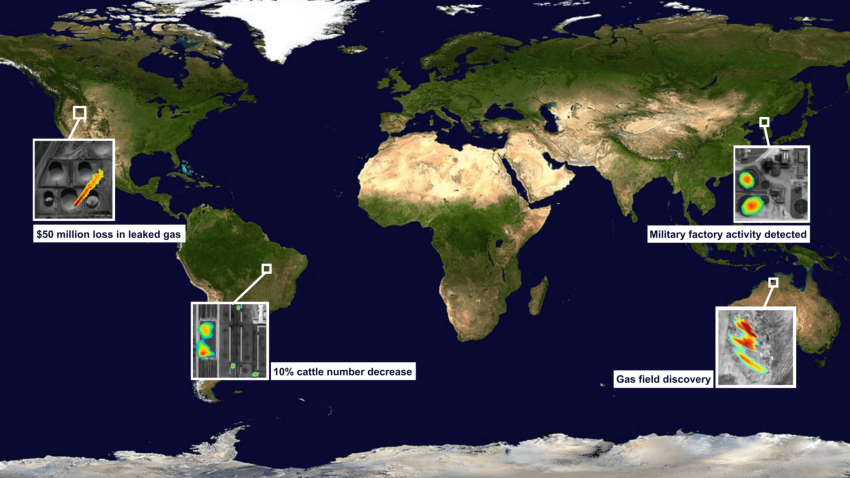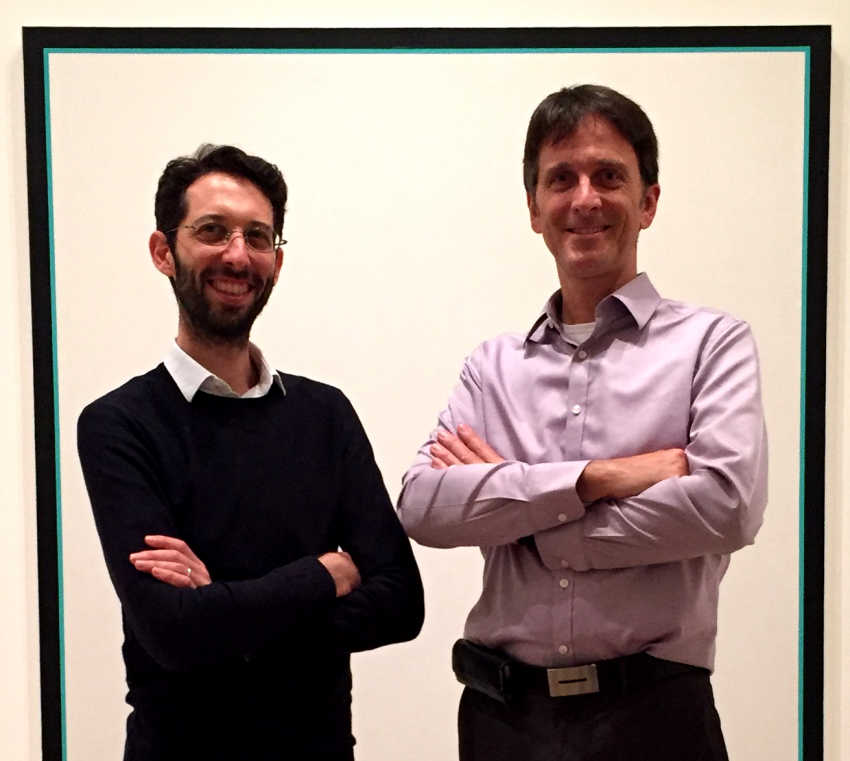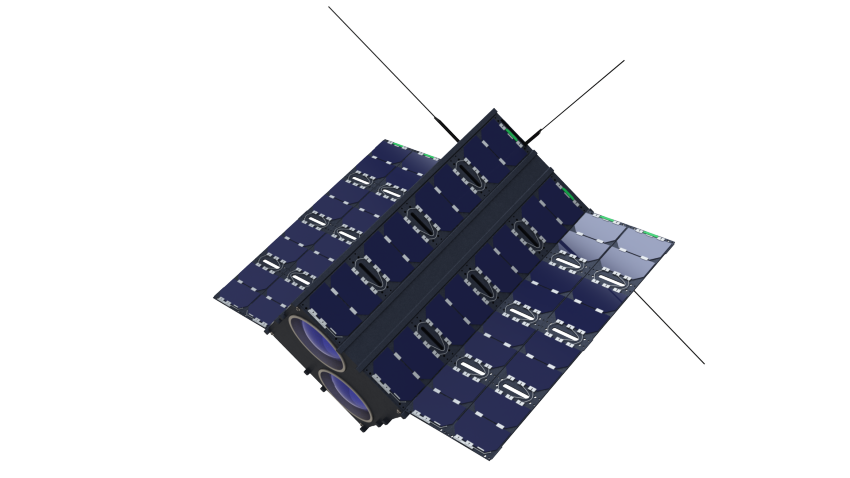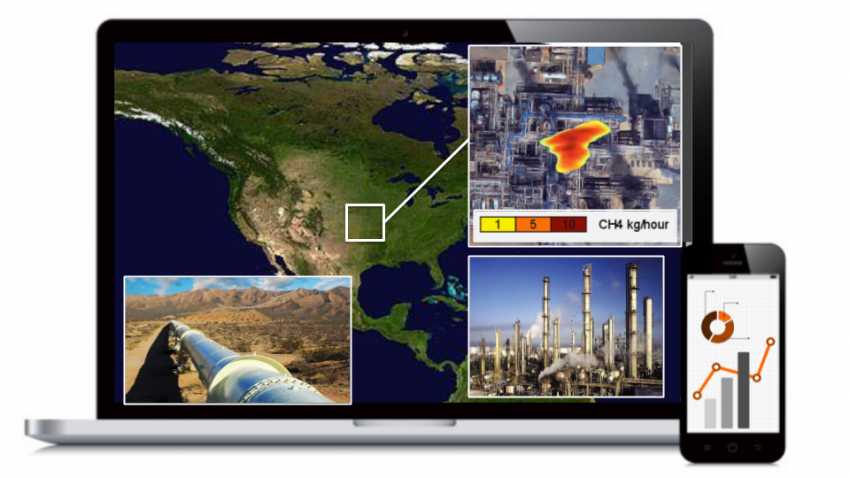The effects of emissions on our climate and environment are only becoming more and more apparent. This will affect humans, as well as all plant and animal life on earth, in the years to come until we enable ourselves to reverse this process. Our very first and effective step in this will be to monitor our planet. Bluefield wants to achieve this by launching micro-satellites into orbit. These will be able to monitor emissions, giving powerful insights to countries, organizations and companies on how we can best take action. The CEO of Bluefield, Yotam Ariel, spoke with us about this project.
What is your background? How it influenced your decision to start Bluefield?
Yotam Ariel: For over ten years I’ve been working in the clean energy sector: I founded a clean energy company and we were selling in over fifteen different countries. I was exposed to insights about the nexus of energy and emissions, and I was paying attention to new business models that the emerging Space 2.0 was creating. It was in 2016 when I took a course by NASA advisor Charles Miller: while going over various opportunities, Charles said that he was certain that someday, somebody would build a business monitoring greenhouse gases with a fleet of nano-satellites. When I heard that, I said to myself, “That somebody is me and that someday is today.’’

In the Photo: Bluefield is able to analyze the concentration of methane around the earth. Photo Credit: Bluefield
Can you share with our readers more about Bluefield’s project to deploy micro satellites?
Yotam Ariel: Of course: in the same way that Google has used satellites to create maps of our visible world, we are using satellites to create maps of the invisible emissions that cause climate change – specifically, emissions of methane, a powerful greenhouse gas emitted as a byproduct of fossil fuel drilling and distribution, landfills, beef production, and other sources. One of the biggest sources of methane is leaks from natural gas pipelines, which are almost impossible to detect in a timely fashion and cause lost profits as well as major climate impacts.
 In the Photo: The user interface of Bluefield’s micro-satellites activity of monitoring the earth. Photo Credit: Bluefield
In the Photo: The user interface of Bluefield’s micro-satellites activity of monitoring the earth. Photo Credit: Bluefield
What kind of data will you be able to collect? Will these data be more relevant to countries, companies, or individuals?
Yotam Ariel: By utilizing a microsatellite-mounted methane sensor, Bluefield will be able to spot methane leaks everywhere in the world on a daily basis at a much lower cost per measurement than current technologies, enabling oil and gas companies to save money while also saving the planet. While these companies are our primary customers, our data will also be very useful to governments, who currently lack the ability to effectively quantify and regulate methane emissions across all relevant sectors.
RELATED ARTICLES:
![]() No doubt about it: Climate Change is real
No doubt about it: Climate Change is real
by Dawn Reeves
![]() A Millennial View on Climate Change
A Millennial View on Climate Change
by Jessica Russel
![]() U.S. Action on Climate Change Will Continue
U.S. Action on Climate Change Will Continue
by Michael Brune
At what stage of the project are you? What is your timeline?
Yotam Ariel: We’re currently testing our prototype sensor, with demonstrations scheduled for oil and gas companies as well as regulators this year. If all goes well, we’ll build a space-ready sensor for launch into orbit by late 2019.
How important is protecting the environment for you? Could Bluefied’s project can play a relevant role in environmental protection?
Yotam Ariel: We wouldn’t be doing this if we didn’t believe that climate change presents an existential threat to our world. Bluefield is targeting methane because it is responsible for a quarter of the global warming we’re already experiencing because oil and gas companies could eliminate over half of their leaks profitably – if only they had good data on where these emissions were occurring. By taking advantage of new technologies to provide this data, we can align what’s good for their bottom line with what’s good for the planet.

In the Photo: L to R: Bluefield’s CEO Yotam Ariel and Bluefield’s CTO Richard L. Lachance. Photo Credit: Bluefield
Do you have other projects in mind for the future of Bluefield?
Yotam Ariel: In the future, we plan to expand into monitoring other greenhouse gases like carbon dioxide. However, political changes may be needed to make that a real business opportunity, which could be years away. We’re starting with methane because it’s the only climate pollutant that companies can profit from controlling today, without any need for governments to act – which is particularly important in today’s political environment.




 In the Photo: The user interface of Bluefield’s micro-satellites activity of monitoring the earth. Photo Credit:
In the Photo: The user interface of Bluefield’s micro-satellites activity of monitoring the earth. Photo Credit: 





